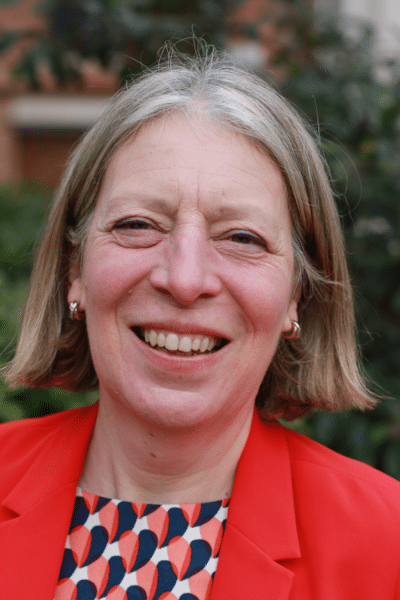This was my first experience in a grown-up world, and beyond the usual introductions, I didn’t say much. I was too new, and of course slightly intimidated.
The technical talk wound down, and the chat turned to some new career opportunities that were coming up abroad. It peaked my interest!
I leaned in.
Pretty soon, it became clear that the discussion was being conducted by, and was solely directed at, the men in the room.
I listened in for a bit, getting more than a little frustrated. Suddenly, out of nowhere, I surprised even myself.
My shy but clear voice piped up and all eyes turned to me, as I found myself asking what exactly was needed to work abroad.




Suddenly, he was interrupted by one of the South American sales representative:
“You’ll just need to marry an expat!”.
He looked very pleased with himself. Everyone else laughed.
And that was that.
Thirty years later, and it still hurts!
To this day, I have no regrets. I grew to love being part of the company’s intercultural team. I made some lifelong friends and, in the end, I actually did get to work abroad. In 1998 I relocated to America, to work in the company’s U.S. headquarters. Over four years, I had some of the best times of my life.
And no, I didn’t have to marry an expat!
The travel bug was still upon me however, and eventually, I landed my dream job in the Aviation Industry.
Which led me to another, very different, meeting in 2003.
I was meeting with my future boss and the company’s CEO. Also present was one of my new colleagues, Annabelle, a woman in her mid-twenties.
As we introduced ourselves and shared stories, she told me that she was a Sales Engineer and that her area of activity was … the entire world!
I was truly amazed, and I clearly remember thinking that I wanted to be part of an industry that placed such obvious trust in female professionals.
Eventually Annabelle started needing help travelling the world, so I was offered the position, and off I went happily visiting all the countries in my area.
At times, I reunited with Annabelle for trade shows. We were a great team, the ones who managed the cleanest booth in India thanks to the efficiency of the male cleaners – who occasionally did a poor job of hiding their surprise when noticing it was two young women staffing a booth.
I loved the aviation industry from the start, and I still do today.



One of the things I like the most is the fact that you can start as a blue collar and, if you are good at what you do, you will find opportunities to progress and develop into leadership roles. Gender is rarely an issue – there are many women in key roles: Engineers, Production Managers, Procurement Managers, CTOs, and even CEOs.
Two of the people I talked to for this article, Miranda and Jacky, both started in a Dutch production facility, building aviation harnesses. From day one, they felt they were in a positive environment, and have both moved to jobs in an Engine Shop where they are well liked and respected.
And just like me, they have had opportunities to travel the world.
Another colleague, Magali, grew up on the French Reunion island and fell in love with planes watching her father’s meticulous work at the local airline hangar. She decided that she wanted to be around planes, and so she joined the Air France mechanical school at the age of 16 and was the only woman in her class.
Soon after she graduated, she started working in what is called the “big visit,’’ where planes are completely torn apart for inspection and maintenance. After a bumpy start with one or two male colleagues, her manager was soon praising her great work.
She started to alternate study and work, taking on more and more responsibilities. Eventually, she made it all the way to CEO of a maintenance shop, where she is now much respected and valued for her expertise.
On the other side of the Atlantic, Rebekah was hired to supervise a male team in a maintenance hangar after obtaining her Aviation Science degree. She grew to be appreciated partly for her sense of proportion and good humor and was considered a supportive manager. She now happily works in a sales position, marketing the maintenance activities she knows so well.
Source: Photographer Paul Ridderhof
Two other female colleagues, Odile and Mercedes, told me recently that they have always felt at home in the aviation industry: Odile works in Communication where she reckons, the only criteria you are measured by are good skills and a willingness to work hard.
Mercedes works in the Engineering department. She started working after graduating as a mechanical engineer – the only woman in her intake. However, she never felt there was any problem, so long as she knew her stuff. She is now a much-respected manager, recognized for her empathy and deep knowledge.
In Turkey, Tugce had a harder time finding work after she recently graduated as a System Engineer. She eventually landed a job in a Maintenance Repair Organization, where the Technical Department Manager was a very inspiring woman and some of the other key managers were also women. However, Tugce still believes there are still some men who see women as “fragile” and they have to prove themselves otherwise.
In fact, that is a common theme with just about everyone I talked to – women still must work harder to prove themselves. That’s perhaps what Lew, VP Ground Support Test Equipment (GSTE), recognized when he recently told me that he admires the passion of women for their job. He is the first manager I’ve ever had who makes absolutely no difference between male and female employees. His only gauge is performance. He knows that having a balance of men and women on his team produces better results.
Nicolas has two women in his Innovation and Tooling team of twenty and he agrees with Lew. He believes women bring color, diversity, and a different insight to the work. Also, Magali reckons that male and female workers actually complement each other, their different ways of seeing problems and their solutions is a big plus.
But what about pay scales? Do women lag behind, like in so many other industries? Although, there are still, of course, some aviation companies where the gender pay gap is apparent, and worldwide work still has to be done. For the most part, the women I spoke to agree that – whilst men can be more aggressive when it comes time to ask for a raise – most did not have the feeling of being left behind.
Another area where work needs to be done is in attracting women to what is still seen as ‘technical’ subjects. In France, for instance, only 20% of people starting an Aviation Engineering Degree are women and this percentage has been stable for the past ten years. My own feeling is that the number of women in “technical fields” will improve only if there is a clear strategy to educate more women. Sarah, an active member of the Women In Aerospace organization explained the unconscious gender bias is what we should all strive to change. For instance, certain traits such as assertiveness are perceived as negative in one gender and positive in another.
But that is a story for another day…
For myself – I am very proud to be part of the aviation industry. We have always been pioneers in innovation, and over the past few generations we have become pioneers in equality. In my time, I have seen many more women join our industry and most of them feel at home here.
It really seems like being part of a family, spread all around the world, united in a common cause. Better than most at mitigating the differences between people and between genders, the aviation industry is filled with individuals who are always ready to lend a helping hand.


